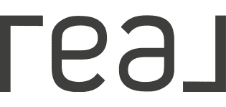The answer to this question is simple. Or is it? We’d say you’re not asking the right question. You should be asking how much a down payment costs for the house type and area you’re considering. What’s the difference?
Read on for our detailed explanation about how much you’ll need for your specific home purchase and how to get it smarter and faster.
What is a good down payment on a house?
A pre-approved mortgage tells you exactly what a good down payment is for you. With housing prices sitting above $500,000, you’re looking at 5% of the first $500,000 and 10% of the remaining amount. If you have a mega budget over $2 million, well, first, kudos to you, and second, you’ll need 20% of the house price. There’s no way around these requirements.
Do you have more home-buying questions? Read these posts next to get some answers:
- Who Pays Land Transfer Tax in Ontario
- Rent Vs. Buy: Toronto Edition
- How Much Does it Cost to Own a Home in Toronto
How Much is a Down Payment on a House in Ontario?
House prices vary drastically. What type of house is it? What town is it? What neighbourhood? That means the down payment is going to vary drastically as well. For example, the average price for a detached house within the GTA which includes Durham, Peel and Halton was $1,425,264 in May 2025. However, in the City of Toronto and surrounding areas such as Scarborough and Etobicoke, that price was $1,719,937. If we look at condo prices, they averaged $683,413 in the GTA and $709,905 in the City of Toronto. That’s some big differences!
So, a down payment for a condo ranges from $38,277 in the GTA to $45,990 in Toronto proper, while a detached house ranges from $117,526 in the GTA to $146,993 in the City of Toronto. Basically, there are just too many factors impacting housing prices to pinpoint an accurate and helpful average down payment in Ontario.
Not sure how interest rates impact home prices? Read our blog: How Interest Rates Affect Home Prices in Canada right here.
How to get a down payment for a house
We’d say knowing how to get a down payment is the most important first step in becoming a homeowner. Try these strategies:
Understand government incentives.
There are two government programs worth looking into:
- The Home Buyers’ Plan (HBP): The government allows you to withdraw up to $60,000 from your registered retirement savings plan (RRSP) tax-free to buy your first home. That’s huge!
- The First Home Savings Account (FHSA): This account allows first-time buyers to save up to $40,000 tax-free, with an annual contribution of up to $8,000. So, you get the interest without paying the taxes. Not bad.
Change your budget mindset to saving.
We all have things we think we can’t live without. However, if you change to a saving mindset for your budget, you’d be surprised at how many things you can live without. It’s all about prioritization. If owning a home is your top priority, you can sacrifice things from major savings, like travel, to less impactful yet incremental savings, such as skipping that expensive morning latte. Figure out your needs and eliminate as many of your nice-to-haves as possible, and you can watch your savings grow.
Have a real estate strategy.
It helps to decide your homeownership goals. If your goal is to get in on the market ASAP, an affordable condo allows you to save faster and get your foot on the proverbial first rung of the real estate ladder sooner. If your heart is set on loftier goals, it will take longer to save while possibly increasing the risk of making the down payment amount less attainable as prices rise.
Pay down debt.
Paying down debt as soon as possible allows you to reduce monthly payments and contributions to interest.
Focus on your smallest debts first. Pay off that balance and then apply the payments for that loan to increase payments on the next debt. This approach allows you to eat away at your debt quickly and turn all those debt payments into savings.
Bank of Mom & Dad
We get that not everyone feels comfortable asking mom and dad for money. However, they might be willing to “top up” your down payment savings. Whether the money is a gift, a loan, or an advance on your inheritance, the bank of mom and dad is interest-free and less judgy. Well, in most cases at least.
Still have questions about buying a home in Toronto? Read these posts next!
- How to Buy an Affordable Home in Toronto
- Can You Skip Buying a Starter Home in Toronto
- How to Protect Yourself Against Real Estate Fraud in Toronto
The Bottom Line
How much a down payment costs depends on the price of the home. Working with a real estate team who understands the market and getting a pre-approved mortgage are the easiest ways to understand exactly what type of down payment you’ll need.
Looking for the best Toronto real estate team to help you on your home-buying journey? We’re here to help! Get in touch with The Christine Cowern team today by filling out the form on this page, calling us at 416.291.7372, or emailing us at hello@christinecowern.com.


